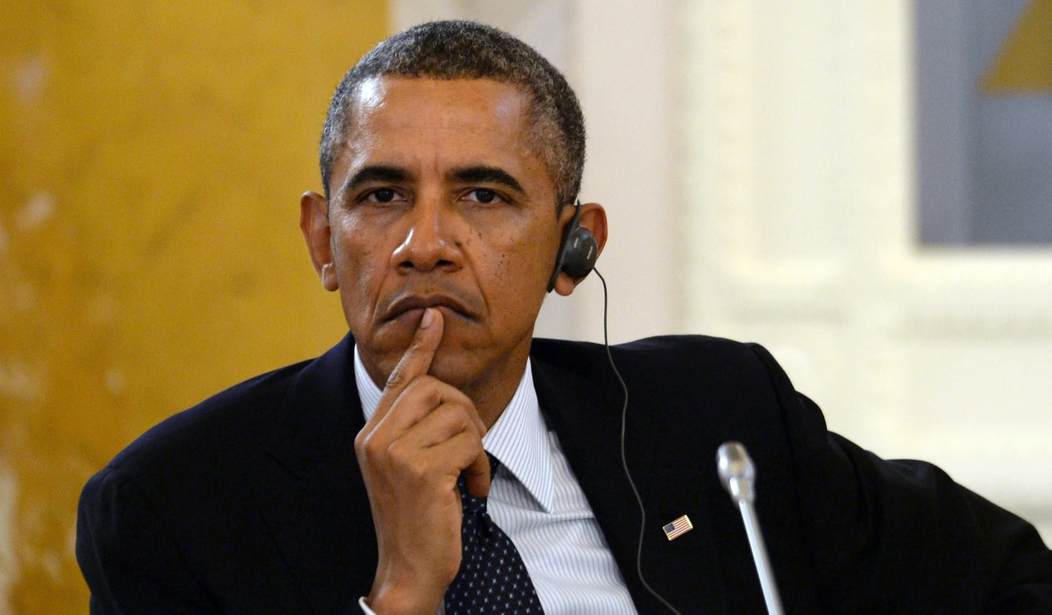(Reposted from Aug 29. Click here for audio of Ledeen discussing this story with Mark Levin on Wednesday.)
They do have a strategy, but they prefer to appear indecisive. That’s because the strategy would likely provoke even greater criticism than the false confession of endless dithering.
The actual strategy is detente first, and then a full alliance with Iran throughout the Middle East and North Africa. It has been on display since before the beginning of the Obama administration. During his first presidential campaign in 2008, Mr. Obama used a secret back channel to Tehran to assure the mullahs that he was a friend of the Islamic Republic, and that they would be very happy with his policies. The secret channel was Ambassador William G. Miller, who served in Iran during the shah’s rule, as chief of staff for the Senate Select Committee on Intelligence, and as ambassador to Ukraine. Ambassador Miller has confirmed to me his conversations with Iranian leaders during the 2008 campaign.
Ever since, President Obama’s quest for an alliance with Iran has been conducted through at least four channels: Iraq, Switzerland (the official U.S. representative to Tehran), Oman, and a variety of American intermediaries, the most notable of whom is probably Valerie Jarrett, his closest adviser. In recent months, Middle Eastern leaders reported personal visits from Ms. Jarrett, who briefed them on her efforts to manage the Iranian relationship. This was confirmed to me by a former high-ranking American official who says he was so informed by several Middle Eastern leaders.
The central theme in Obama’s outreach to Iran is his conviction that the United States has historically played a wicked role in the Middle East, and that the best things he can do for that part of the world is to limit and withdraw American military might and empower our self-declared enemies, whose hostility to traditional American policies he largely shares.
If we look at the current crisis through an Iranian lens, our apparent indecisiveness is easier to understand, for it systematically favors Iran’s interests. Tehran’s closest ally is Syrian dictator Bashar Assad. If Assad were to be overthrown by opposition forces hostile to Iran, it would be a devastating blow to Iranian Supreme Leader Ali Khamenei, who has committed tens of thousands of fighters (from Hezbollah, the Revolutionary Guards and the Basij) to shore up the Damascus regime. Everything Iran does in the region revolves around the necessity of preserving Assad’s tyranny.
Obama surely understands this. It therefore made no sense to bomb Syria in the otherwise baffling about-face on the “red line” a year ago. In like manner, the refusal to take decisive action today against the Islamic State caters to Iranian and Syrian concerns. Remember that ISIS was supported by Iran and Syria as a weapon against anti-Assad and anti-Iranian forces (from the Kurds to the FSA), none of whom is receiving serious American support.
It is exceedingly unlikely that Mr. Obama will do anything that would threaten Assad’s rule or Iran’s power. To do so would be tantamount to abandoning his core strategy of creating a U.S.-Iranian alliance that would make Tehran the major regional power and Washington a friendly kibbitzer and adviser.
It is even more unlikely that Mr. Obama and his spokespeople will confess to actually having a strategy, because of the political firestorm that would result. Better to be thought a fool than to remove all doubt, after all.








Join the conversation as a VIP Member